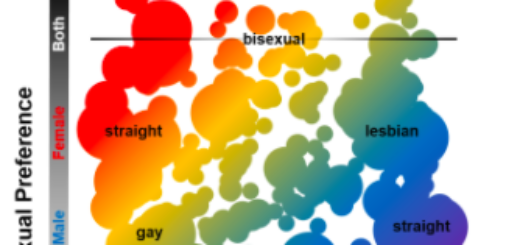Ethical theories – 2: Verghese Pamplani

 This article is the summary of an extensive study and research done by Shri Verghese Pamplani. This is for those who are interested to know the facts and truths on which Christian Philosophy was founded. Shri Verghese Mathew Pamplani (75), originally from Kerala, is an enthusiastic reader and a gifted writer, who lives in UK now. He began his career as a teacher but ended up as Deputy General Manager in Reserve Bank of India – Trivandrum. By temperament, he is agnostic; his extensive reading has helped him to reinforce his thinking and beliefs. Joseph Mattappally (Asso. Editor)
This article is the summary of an extensive study and research done by Shri Verghese Pamplani. This is for those who are interested to know the facts and truths on which Christian Philosophy was founded. Shri Verghese Mathew Pamplani (75), originally from Kerala, is an enthusiastic reader and a gifted writer, who lives in UK now. He began his career as a teacher but ended up as Deputy General Manager in Reserve Bank of India – Trivandrum. By temperament, he is agnostic; his extensive reading has helped him to reinforce his thinking and beliefs. Joseph Mattappally (Asso. Editor)
Other Posts: Ethical theories -1: Ethical theories – 3, Ethical theory – 4
Ethical theories – 2
 4. What Is Morality Based. Thomas Hobbes(1588‐1679)
4. What Is Morality Based. Thomas Hobbes(1588‐1679)
Hobbes argued that there should be a contract between individuals and their ruler. The basis of Hobbes’ contact is that human nature is selfish and human action is based on emotion rather than reason. People therefore need to agree together on a form of contract that will give them mutual security and once established such a contract can be enforced by force,if necessary. Thus Hobbes see it necessary to construct a state ( his Leviathan)’with absolute powers. Morality is not established ( as for Aristotle or Aquinas ) by an overall sense of design and purpose but imposed by mutual agreement in order to curb the selfishness of human emotions.
John Locke (1632‐1704)
Locke also sought to legitimise the authority of the state. In his Treaties of Government 1690) he presented the need for a social contract as the basis of morality and social cohesion. Like Hobbes he starts from a state of nature but unlike Hobbes he does not see this as a state of anarchy. Rather he sees people as having relations with one another and making claims on one another but needing to have some authoritative and impartial arbiter to decide between competing interests. He is concerned ,eg.,to establish private property and to the rewards of one’s labour. He sees the social contract as the means of establishing that authority and it is an authority that has the tacit consent of all who live within the area of its jurisdiction ( as Hobbes) .
Locke moved beyond Hobbes in one crucial respect namely that for Hobbes the ruler is responsible for the law. Once the contract is in force the ruler is required to enact such laws as are necessary. For Locke the ruler is under the law and the final authority lies not with any individual but with the institution of the state. Thus it was Locke rather than Hobbes who set down the principles that have led towards modern democracy.
Jean‐Jacques Rousseau (1712‐78)
Rousseau took a more positive view of the natural state. He believed that there are two primitive emotions,one is the impulse to self preservation and the other is a general repugnance at the suffering of others. He saw suffering and social inequality as the result of principles imposed by society on otherwise naturally good people. He saw that
“Man was born free,and everywhere he is in chains”
The assumption he makes is in the interests of the individual are in line with the interests of the state as a whole. The establishing of civil liberties will be to his or her own benefit. He sees morality as expressed through the conscience of the individual,but it is always acted out in a social context, moral issues concern the way we treat one another and the task of a just and moral society is to enable that natural moral sense to be exercised without placing obstacles in its way.
Summary List
Morality is based on the passions and emotions.
It is subsequently channelled by reason,either in terms of reason’s ability to anticipate the result of action or by reason’s establishment of social contracts of some sort.
The individual takes centre stage in this approach to morality. The state is there in order to further the enlightened self‐interest of individuals.
Issues of ‘good’ and ‘bad’,’right’ and ‘wrong’ are not related to some overall metaphysic ( as we saw with Aquinas’ Natural Law approach, Aristotle’s final cause or Form of the Good) but are simply the terms used for those things that are approved of or disapproved of by the emotions. If reason subsequently uses them as the basis for social contract or suggests what the result of an action might be, the impetus to act and the final justification of what happens seems to lie with the emotional stance of the individual.
Social contract ideas were also put forward by Thomas Paine 1737‐1809) and J.S.Mill(1806‐ 73), developing the concept of the right of the individual within a democracy and considering the competing claims of the individuals and minorities within a society.
The works of these thinkers is a matter of politics. Justice and morality are regarded as enshrined within a mutual agreement and implemented by common consent through the institutions of the state. The contract is judged according to whether or not it can deliver individual rights and freedoms compatible with the welfare of the whole of the society. Practically morality becomes a human construct necessitated either in order to overcome natural aggression or to enhance the natural desire for cooperation.
5. Modern contact and rights‐based approaches.
In the sphere of political ethics rights‐based approaches have been taken by John Rawls.
Robert Nozick,Ronald Dworkin,John Mackie and others and suggested that all moral theory should be based on concept of rights. The Universal Declaration of Human Rights is an important statement of global morality.
Utilitarianism.
In it's simplest form Utilitarianism is based on the “Principle of Utility” that in any situation where there is a moral choice one should do that which results in the greatest happiness for the greatest number of people ( a phrase coined by Francis Hutcheson). The theory of utilitarianism was set out by Bentam and developed by J.S. Mill and later by Henry Sidgwick .
Jeremy Bentham (1748‐1832)
Bentham was much concerned with the social conditions of his day and got involved both with hospitals and prisons. His moral theory : whatever is done in a society would be judged right or wrong according to whether not it benefited the majority of its citizens. Whether or not an action also conformed to a rule or law was secondary consideration‐ his primary interest was with the happiness created.
John Stuart Mill (1806‐73)
There are many forms of pleasure and not all may be considered to be of equal value. For this reason Mill wanted to go beyond the assessment offered by Bentham. He was quite realistic about human nature in in this respect.
“It may be objected that many who are capable of the higher pleasures occasionally under the influence of temptation,postpone them to the lower. But this is quite compatible with a full appreciation of the intrinsic superiority of the higher. Men often from inferiority of character make their election for the nearer good,though they know it to be the less valuable, and this is no less valuable, and this no less when the choice is between two bodily pleasures than when it is between bodily and mental. They pursue sensual indulgences to the injury of health though perfectly aware that health is the greatest good. … Capacity for nobler feelings is the most natures a very tender plant, easily killed not only by hostile influences but by the mere want of sustenance,and in the majority of young persons it speedily dies away,if the occupations to which their position in life has devoted them and the society into which it has thrown them,are not favourable to keeping that higher capacity in exercise. Men lose their higher aspirations as the lose their intellectual tastes, because they have no time or opportunity for indulging them,and they addict themselves to inferior pleasures not because the prefer them but because they either the only bones to which they have access or the only ones which they are any longer capable of enjoying. It may be questioned whether any one who has remained equally susceptible to both classes of pleasures ever knowingly and calmly preferred the lower ,though many,in all ages have broken down in an ineffectual attempt to combine both.”
“The utilitarian morality does recognise in human beings the power of sacrificing their own greatest good for the good of others. It only refuses to admit that the sacrifice itself a good. A sacrifice which does not increase the sum total of happiness ,it considers as wasted”.
Summary List:
Bentham and Mill both accept the The principle of utility and the assessment of resulting happiness as the criterion for assessing the moral value of an action.
But Mill rejected Bentham’s way of assessing pleasure being more concerned with the quality rather than the quantity of happiness achieved
In general Bentham presents what is known “act”utilitarianism were the anticipated result of each in individual are taken into taken into,account whilst Mill a “rule” utilitarian view namely that one should obey a rule if that rule will itself bring about more happiness within society.
Benefits of utilitarianism includes its simplicity and the way in which all considerations are brought under a single principle. It is also as Sidgwick said an approach that is a common‐ sense approach. Criticisms they are given above includes the problem of moving from as “ is” to an “ought” in gems of what is desired of the impersonal assessment of what is in other people’s interest and of the inadequate treatment of issues of individual rights and integrity.
















